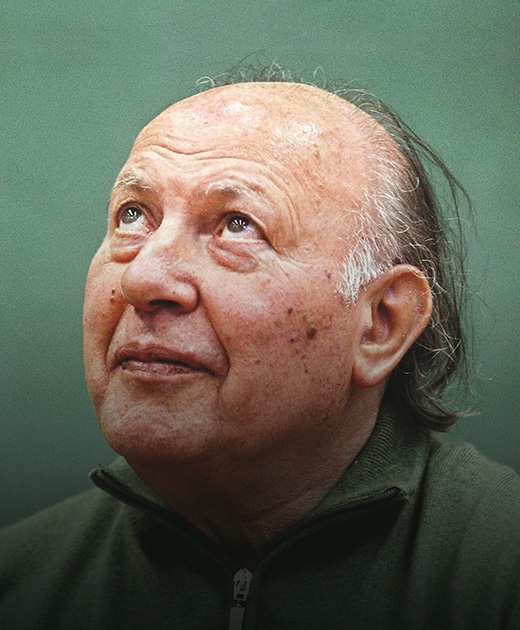Imre Kertész
Born in 1929 / Hungary
"In my writing, the Holocaust can never be mentioned in the past tense. In the Holocaust, I recognized a certain state of man, the final station of a great adventure reached by a European man with his two thousand years of ethical and moral culture built behind his back."
1929
One of the most famous Hungarian writers and a Nobel Prize winner for literature Imre Kertész was born on November 9, 1929 in Budapest.
1944
In the summer of 1944, at the age of fourteen, he and other Hungarian Jews were deported to the Auschwitz concentration camp. Upon arrival at the camp, he declared himself a 16-year-old worker, and this saved his life - as a fourteen-year-old boy, he was to be murdered in a gas chamber. "In my writing, the Holocaust can never be mentioned in the past tense. In the Holocaust, I recognized a certain state of man, the final station of a great adventure reached by a European man with his two thousand years of ethical and moral culture behind his back. ” A few days later he was sent to the Buchenwald concentration camp. Here he worked in harsh conditions in the branch camps in Magdeburg and Zeitz. When he was no longer capable of further slave labor, he returned to Buchenwald in a poor state. He found himself in Antonín Kalina's block and, thanks to Kalina and to the care of other fellow prisoners, he was liberated from the concentration camp.
1950
After the liberation of the Nazi camp, he returned to Hungary, where he worked shortly as a journalist. As early as in 1950, however, he had to leave the office of the communist newspaper for political reasons. He made his living doing manual work, later he worked as a translator and writer. Kertész translated many world-famous authors into Hungarian: Sigmund Freud, Friedrich Nietzsche, Joseph Roth, Arthur Schnitzler, Elias Canetti and Ludwig Wittgenstein.
1960-1975
Imre Kertész became world famous mainly thanks to the novel Člověk bez osudu (Fateless), on which he worked between 1960 and 1973. In the story of a Jewish boy who goes through concentration camps, autobiographical elements can easily be seen, although the author himself rejects such an interpretation. The novel was published in 1975 and it is still one of the most important literary reflections on the Holocaust. "The worst thing about the Holocaust is that it happened."
2002
Other books by this world-famous author were published in Czech translation: Kadiš za nenarozené dítě (Kaddish for an Unborn Child), Fiasko, Likvidace (Liquidation) or a diary-style prose Někdo jiný. Kronika proměny (Someone Else. Chronicle of Transformation). In 2002, Imre Kertész, whose work was translated into many world languages, became the first Hungarian novelist to win the Nobel Prize for Literature. The Swedish Academy also justified its decision with these words: "It is a prize for a writing activity that speaks about a fragile experience of the individual facing the barbaric will of history."
2016
Imre Kertész died on March 31, 2016 in Budapest at the age of 86.
